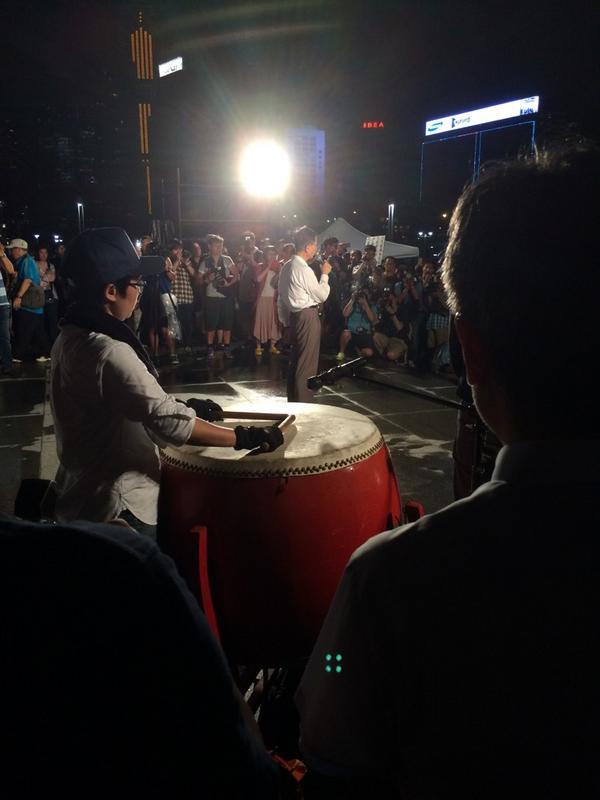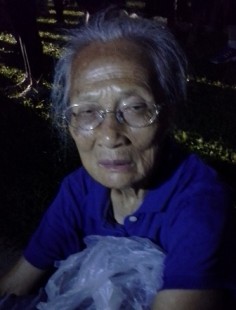http://mobile.nytimes.com/2014/09/01/world/asia/hong-kong-elections.html

Benny Tai, right, co-founder of the Occupy Central movement, rallied democracy activists next to the Hong Kong government complex on Sunday.
ALEX OGLE / AGENCE FRANCE-PRESSE — GETTY IMAGES
By CHRIS BUCKLEY, MICHAEL FORSYTHE and ALAN WONG
AUGUST 31, 2014
HONG KONG — China’s legislature laid down strict limits on Sunday to proposed voting reforms in Hong Kong, drawing battle lines in what pro-democracy groups warned would be a deepening confrontation over clashing visions of the political future of the city and of China.
Pushing back against months ofrallies calling for free, democratic elections in Hong Kong, the National People’s Congress Standing Committee set out procedural barriers for candidates for the city’s top leader that would ensure Beijing remained the gatekeeper to that position and to political power over the city.
Li Fei, a deputy secretary general of the committee, told a news conference in Beijing that the nominating guidelines — including a requirement that candidates “love the country, and love Hong Kong” — would “protect the broad stability of Hong Kong now and in the future.”
The move closes one of the few avenues left for gradual political liberalization in China after a sustained campaign against dissent on the mainland this year under President Xi Jinping. In pressing its offensive in Hong Kong, Beijing has chosen a showdown with a protest movement unlike any it has ever faced on the mainland. Hong Kong’s opposition forces enjoy civil liberties denied in the rest of China and, capitalizing on those freedoms, have taken a more confrontational approach than seen before in Hong Kong.

A storm front moved over Hong Kong on Sunday as protesters began gathering before China’s legislature announced its decision on suffrage in the territory.
ALEX OGLE / AGENCE FRANCE-PRESSE — GETTY IMAGES
Hong Kong opposition groups and politicians who have campaigned for unfettered voting for the city’s leader, the chief executive, said the limits set by Beijing made a mockery of the “one person, one vote” that had been promised to Hong Kong.
“After having lied to Hong Kong people for so many years, it finally revealed itself today,” said Alan Leong, a pro-democracy legislator. “Hong Kong people are right to feel betrayed. It’s certain now that the central government will be effectively appointing Hong Kong’s chief executive.”
Occupy Central, the main Hong Kong group advocating open elections, said it was planning civil disobedience protests in the city’s commercial heart.
“We are very sorry to say that today all chances of dialogue have been exhausted,” the group said in an emailed statement. “The failure of this constitutional reform has dashed people’s hopes for change and will intensify conflicts in the society.”

From left, Edward Chin, organizer of Financial Professionals for Occupy Central, Benny Tai, co-founder of the Occupy Central movement, and the activist Bob Kraft addressed members of the news media at a protest outside government offices in Hong Kong on Friday.
ALEX OGLE / AGENCE FRANCE-PRESSE — GETTY IMAGES
Other groups were also preparing to protest, and the Hong Kong Federation of Students urged university students to boycott classes.
Beyond its consequences for this former British colony of 7.2 million people, the tight reins on Hong Kong politics reflect a fear among leaders in Beijing that political concessions here would ignite demands for liberalization on the mainland, a quarter-century after such hopes were extinguished on Tiananmen Square in 1989.
“They are afraid that caving in to Hong Kong would show weakness,” Minxin Pei, a professor of government at Claremont McKenna College in California, said in a telephone interview. “They believe the political weakness will encourage Hong Kong to demand more and will give opponents of the party’s rule in China great confidence to challenge the party.”
Since taking leadership of the Communist Party almost two years ago, President Xi has orchestrated intense campaigns in China against political dissent and demands for competitive democracy, civil society and a legal system beyond party control. But Hong Kong presents special challenges.
Advocates and opponents of political liberalization alike have seen Hong Kong as a potential incubator for change in China since it was returned to Chinese rule in 1997. Since then, the territory has had considerable autonomy and retained a wealth of Western-style freedoms under an arrangement known as “one country, two systems.”
The struggle over electoral change here pits the Chinese authorities and their allies in Hong Kong against an opposition that claims robust middle-class support, protections by the city’s independent judiciary and a voice in an independent, though beleaguered, news media.
“China’s two most important cities are Beijing and Hong Kong,” Hu Jia, a prominent dissident in Beijing, said in a telephone interview on Sunday. He said he had been placed under house arrest, like other dissidents, before the National People’s Congress announcement.
“In the territory controlled by the Chinese Communist Party, only Hong Kong has some space for free speech, some judicial independence, so it is a mirror for people on the mainland,” he said. “The outcome of this battle for democracy will also determine future battles for democracy for all of China.”
Chinese officials have accused Hong Kong’s democracy groups of serving as tools for subversion by Western forces seeking to chip away at party control.
Mr. Li, the legislative official, on Sunday accused them of “sowing confusion” and “misleading society” by arguing that elections for the chief executive should follow international standards. “Each country’s historical, cultural, economic, social and political conditions and circumstances are different, and so the rules formulated for elections naturally also differ,” he said.
Under current law, the chief executive is chosen by an Election Committee, whose approximately 1,200 members are selected by constituencies generally loyal to Beijing and the city’s business elite.
According to the Chinese legislature’s proposal, the leader would be chosen by popular vote starting in 2017, as promised, but candidates would first have to win an endorsement from at least half the members of a nominating committee. The composition of that committee would be based on that of the current Election Committee, according to the decision, announced at Beijing’s Great Hall of the People.
Mr. Li said that the existing committee was already “broadly representative” of the Hong Kong electorate, and so would furnish the right basis for a nominating committee in future elections, an assertion that Hong Kong democrats have roundly rejected.
Democracy advocates expect that the new committee, like the existing one, would exclude candidates seen as unfavorable by Beijing.
Its composition would ensure “that democrats have no chance of getting nominated,” said Michael Davis, a law professor at the University of Hong Kong. In fact, he said, it would raise the bar. Candidates have to win only one-eighth of the support of the current committee but would have to win 50 percent under the new guidelines. “As far as I can see, the government has no capacity to offer a deal the democrats will take in this,” he said.
The Chinese government fears that direct nominations would allow candidates hostile to Beijing, and it has said direct nominations would also contravene the Basic Law, the document governing Hong Kong’s relationship with the mainland.
The Hong Kong government will use the Chinese legislature’s proposal as a framework for an electoral reform bill. That bill then must win approval from the city’s 70-member Legislative Council, where the 27 democratic members could still block its passage by the required two-thirds majority.
Emily Lau, chairwoman of Hong Kong’s Democratic Party, said they would. “We will veto this revolting proposal,” she said Sunday.
But C.Y. Leung, Hong Kong’s current, pro-Beijing chief executive, said killing the bill would also kill universal suffrage.
“Five million Hong Kong people would be deprived of the voting right that they would be otherwise entitled to,” he said. “We cannot afford a standstill in our constitutional development or else the prosperity, or stability, of Hong Kong will be at stake.”
The clash in Hong Kong will be more about winning over public opinion than winning control of the crowded streets. Opinion polls show that most Hong Kong citizens support the demand for “unfiltered” electoral choice, but also that many have qualms about possible disruption from protests.
The Chinese government and the Hong Kong political establishment have accused Occupy Central and allied groups of recklessly imperiling the city’s reputation for political stability and support for business. And many ordinary Hong Kong residents have voiced worry about any political conflict that could hurt their livelihoods.
But Occupy Central says it will engage in nonviolent civil disobedience calibrated to avoid major disruption. Its organizers have said that they do not plan to plunge immediately into any protests after the Chinese authorities announce their plans.
“We’re not making threats, we’re just sending warning signals,” said Mr. Tai, the co-founder of Occupy Central. “The house is on fire, something has to be done.”
Patrick Zuo contributed research from Beijing.



















